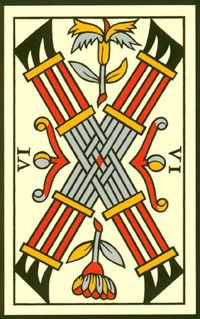
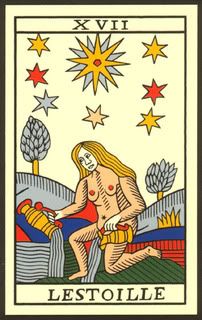
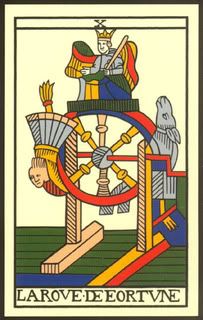
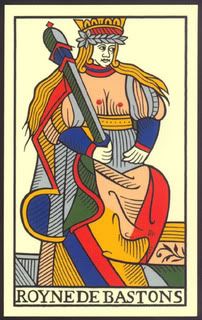
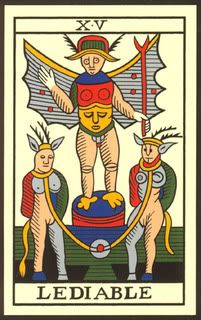
More from Season:
"A hyena you'll remain..."cries the demon that crowns me with many poppies. "Make for death with every appetite intact, with your egotism, and every capital sin."
Ah. It seems I have too many already: --But, dear Satan, I beg you not to look at me that way...
Science, the new nobility. Progress. The world turns. Why wouldn't it?...
But we don't leave. --We take the same roads, burdened with my vice, vice that since the age of reason has sunk its roots right into my side-- climbing skyward...
Out of the same desert, on the same night, my weary eyes forever stare at-- a silver star, but without setting life's Kings in motion, the three magi-- heart, soul, spirit. When, beyond mountains and rivers, will we embrace the birth of new endeavors, new wisdom, the departure of tyrants and demons, the end of superstition...
The wheel, how we are bound to it, how we struggle to escape it, and how it turns endlessly is an existential phenomenon that is itself endlessly turned over; medieval thinkers had their Rota Fortunae, and saṃsāra is a central tenet of Buddhism and Hindusim. In its paradoxical way, Buddhism teaches that the only means of liberation from the wheel is the wheel itself, and the Buddha's turning of it through the teachings of the Four Noble Truths.
I'm not a Buddhist, and one doesn't need to be in order to see that what we have here are images of release and captivity, suffering and attachment, desire and surrender, all spinning off from the wheel at the center.
Normally I would read a sequence of cards from left to right, past to future, but these might also run backwards, or in a more circular manner: the queen appearing to turn away from the beckoning hand of the Devil, considering her apparently elevated status in the world, perhaps realizing that its foundations aren't as stable as they seem or that she is trapped by it, and finally coming back to the ground, unencumbered by symbols and unashamed to reveal herself, emptied of burdens and able to see to the roots of her own "Heart-mysteries there", as Yeats would have it. Read in this way we have a message of acceptance, and an acknowledgement of the need for liberation at the center of the human condition. Or we can imagine the four cards encircling the wheel itself, just as in the Carmina Burana it is captioned "I rule", "I have ruled", "I will rule", and "I am without rule" at its quadrants.
The danger, of course, is becoming resigned to this seemingly endless cycle, or getting stuck at one point in its circuit. There are as many ways to do this as there are ways to read these cards. In the same poem Yeats speaks of a woman who, "pity-crazed, had given her soul away, / But masterful Heaven had intervened to save it"; she is the Countess Cathleen of his mythic Irish history, who sells her soul to Satan to save the peasants suffering from famine and disease, but who escapes her fate when God grants her clemency for her sacrifice. She is one-dimensional, a "character isolated by a deed" in a morality play, resigned to dependence on the mercy of a distant deity. To see that we are are caught up in a circumstance sometimes called fate, to understand the nature of the beast, doesn't mean we should blindly hand ourselves over to it. This is the mistake of slavish devotion to religion--the perception of a world where we are helpless without the assistance of an unquestionable power outside ourselves, a world where everything is good or bad and there is no middle ground, where we are saved or damned on the strength of our adherence to a few reductive ideologies.
But what if we do read these cards from left to right, and swing the opposite way? If we see that the wheel turns regardless, and accept that this world is a manifestation of illusion, it's a small step to deciding that everything is immaterial, morality and the soul included. The Queen of Batons, instead of stripping down to the purity of the Star, or walking to her own martyrdom, may be seen as something akin to a Maenad, dancing away from the center and towards a dissolution that may appear to be liberating, but is in fact another kind of delusion. Worshipping destruction for its own sake, revoking responsibility in the pursuit of a release from the ego, or laying blame for our apparent suffering on the world's evils without looking for a remedy is as senseless as submitting to the will of a tyrannical ruler or a vengeful God. Even the Devil seems to want no part in it; he looks out from the card uneasily, and his captives are chained to nothing but each other, apparently complicit in their own bondage. The insanity plea, and "the devil made me do it", can be a bit too close to "thy will be done" for comfort.
We can define ourselves by what we lack, see ourselves as a skin wrapped around a void, choose to remain "in the foul rag-and-bone shop of the heart". We can do our best to secure our own release, and see through all the spin to the truth.
The word "beast" derives from the Greek therion, meaning "trap", and its diminutive, thera, may also mean "door". Somewhere between the two is the key.
"A hyena you'll remain..."cries the demon that crowns me with many poppies. "Make for death with every appetite intact, with your egotism, and every capital sin."
Ah. It seems I have too many already: --But, dear Satan, I beg you not to look at me that way...
Science, the new nobility. Progress. The world turns. Why wouldn't it?...
But we don't leave. --We take the same roads, burdened with my vice, vice that since the age of reason has sunk its roots right into my side-- climbing skyward...
Out of the same desert, on the same night, my weary eyes forever stare at-- a silver star, but without setting life's Kings in motion, the three magi-- heart, soul, spirit. When, beyond mountains and rivers, will we embrace the birth of new endeavors, new wisdom, the departure of tyrants and demons, the end of superstition...
The wheel, how we are bound to it, how we struggle to escape it, and how it turns endlessly is an existential phenomenon that is itself endlessly turned over; medieval thinkers had their Rota Fortunae, and saṃsāra is a central tenet of Buddhism and Hindusim. In its paradoxical way, Buddhism teaches that the only means of liberation from the wheel is the wheel itself, and the Buddha's turning of it through the teachings of the Four Noble Truths.
I'm not a Buddhist, and one doesn't need to be in order to see that what we have here are images of release and captivity, suffering and attachment, desire and surrender, all spinning off from the wheel at the center.
Normally I would read a sequence of cards from left to right, past to future, but these might also run backwards, or in a more circular manner: the queen appearing to turn away from the beckoning hand of the Devil, considering her apparently elevated status in the world, perhaps realizing that its foundations aren't as stable as they seem or that she is trapped by it, and finally coming back to the ground, unencumbered by symbols and unashamed to reveal herself, emptied of burdens and able to see to the roots of her own "Heart-mysteries there", as Yeats would have it. Read in this way we have a message of acceptance, and an acknowledgement of the need for liberation at the center of the human condition. Or we can imagine the four cards encircling the wheel itself, just as in the Carmina Burana it is captioned "I rule", "I have ruled", "I will rule", and "I am without rule" at its quadrants.
The danger, of course, is becoming resigned to this seemingly endless cycle, or getting stuck at one point in its circuit. There are as many ways to do this as there are ways to read these cards. In the same poem Yeats speaks of a woman who, "pity-crazed, had given her soul away, / But masterful Heaven had intervened to save it"; she is the Countess Cathleen of his mythic Irish history, who sells her soul to Satan to save the peasants suffering from famine and disease, but who escapes her fate when God grants her clemency for her sacrifice. She is one-dimensional, a "character isolated by a deed" in a morality play, resigned to dependence on the mercy of a distant deity. To see that we are are caught up in a circumstance sometimes called fate, to understand the nature of the beast, doesn't mean we should blindly hand ourselves over to it. This is the mistake of slavish devotion to religion--the perception of a world where we are helpless without the assistance of an unquestionable power outside ourselves, a world where everything is good or bad and there is no middle ground, where we are saved or damned on the strength of our adherence to a few reductive ideologies.
But what if we do read these cards from left to right, and swing the opposite way? If we see that the wheel turns regardless, and accept that this world is a manifestation of illusion, it's a small step to deciding that everything is immaterial, morality and the soul included. The Queen of Batons, instead of stripping down to the purity of the Star, or walking to her own martyrdom, may be seen as something akin to a Maenad, dancing away from the center and towards a dissolution that may appear to be liberating, but is in fact another kind of delusion. Worshipping destruction for its own sake, revoking responsibility in the pursuit of a release from the ego, or laying blame for our apparent suffering on the world's evils without looking for a remedy is as senseless as submitting to the will of a tyrannical ruler or a vengeful God. Even the Devil seems to want no part in it; he looks out from the card uneasily, and his captives are chained to nothing but each other, apparently complicit in their own bondage. The insanity plea, and "the devil made me do it", can be a bit too close to "thy will be done" for comfort.
We can define ourselves by what we lack, see ourselves as a skin wrapped around a void, choose to remain "in the foul rag-and-bone shop of the heart". We can do our best to secure our own release, and see through all the spin to the truth.
The word "beast" derives from the Greek therion, meaning "trap", and its diminutive, thera, may also mean "door". Somewhere between the two is the key.




No comments:
Post a Comment